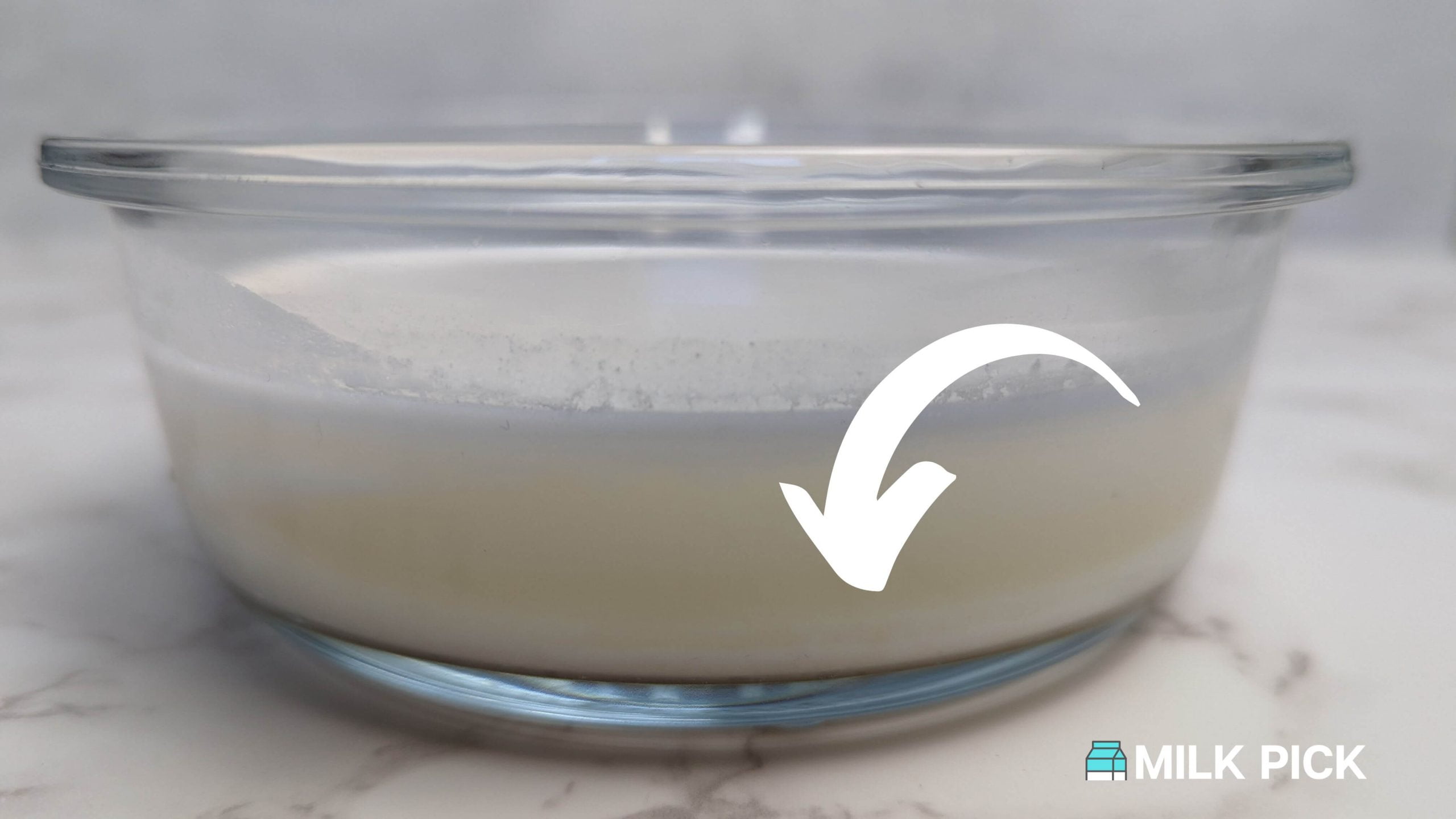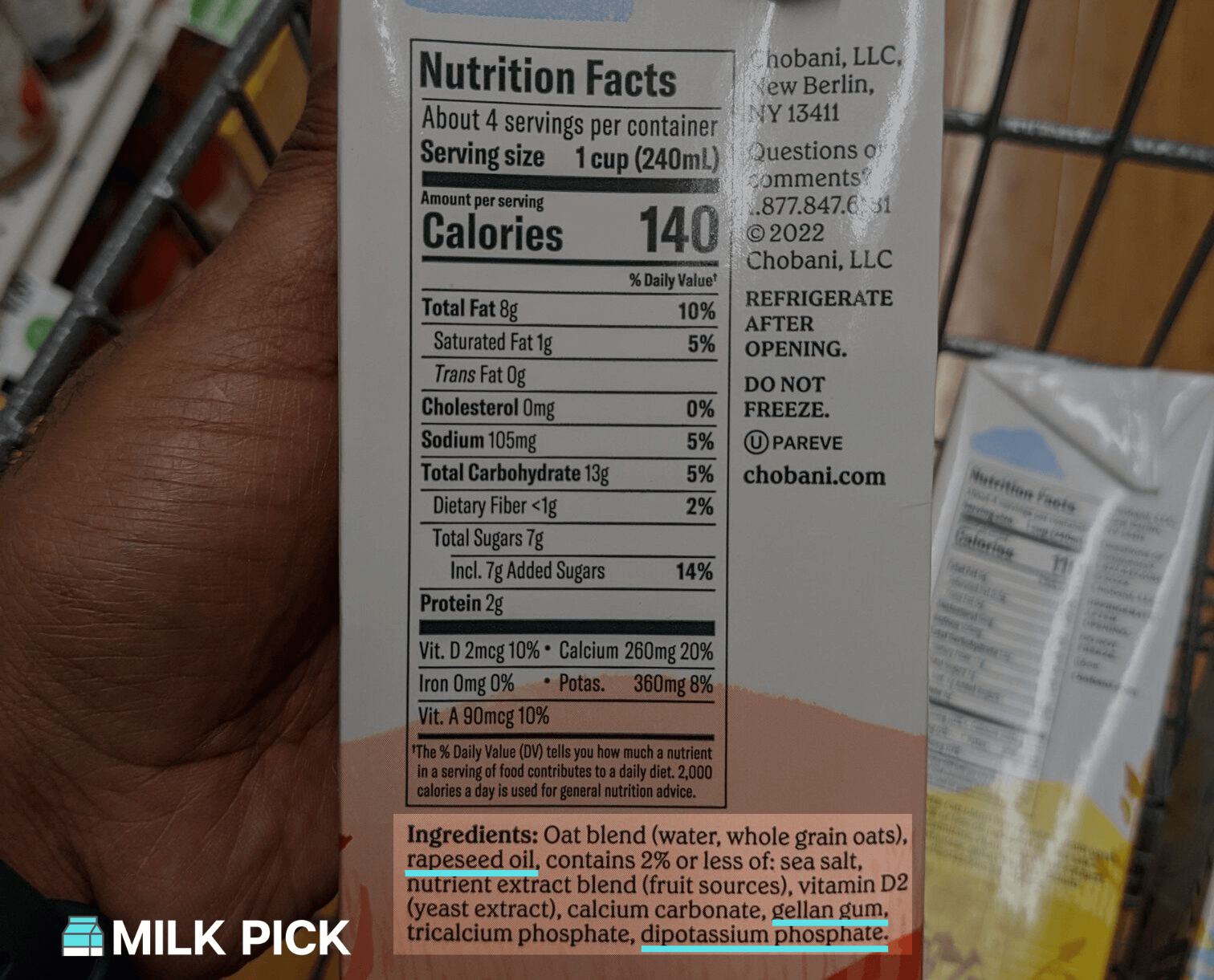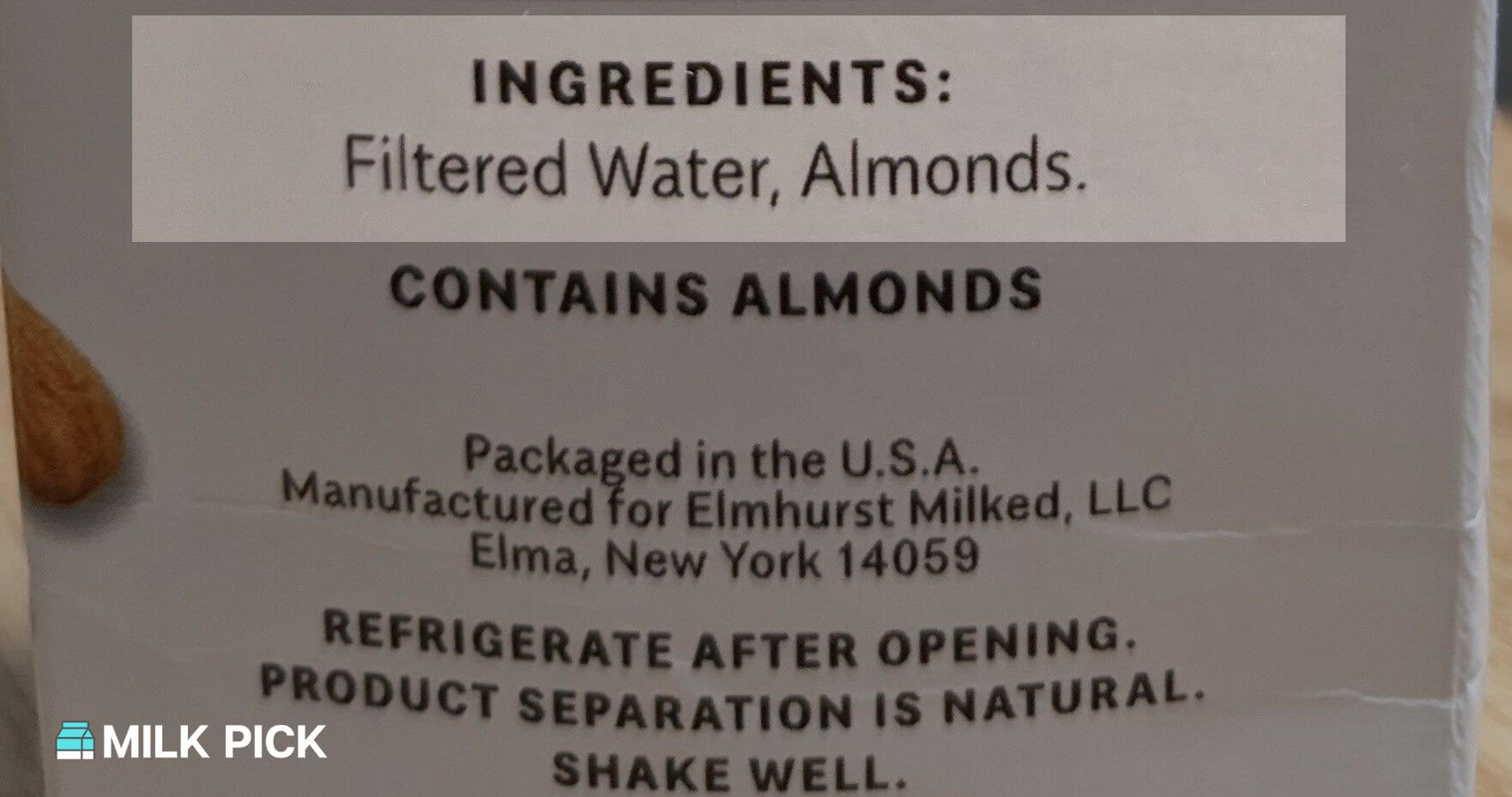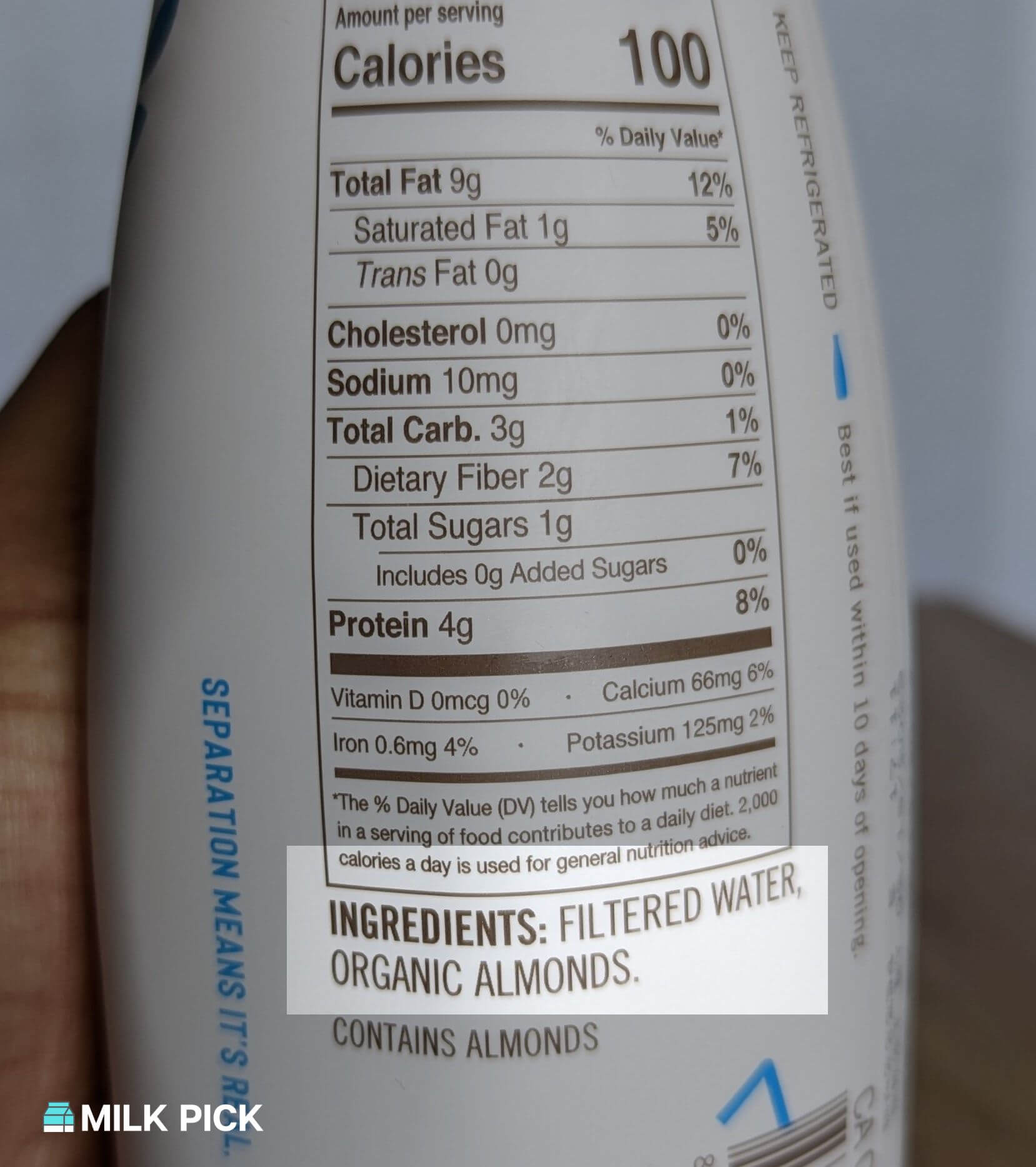When choosing the right dairy milk alternative for your diet, there are several aspects to consider. The milk’s macro and micronutrients may influence your decision, but one of the most significant components to think about are the milk brand’s added ingredients, including emulsifiers.
Emulsifiers come in many forms - some are natural and plant-based, others are synthetic or unhealthy alternatives, and they help keep plant milk from separating. However, emulsifiers can also cause digestive issues and often indicate the presence of additional additives.
Learn more about emulsifiers, including what they are, why manufacturers use them, and whether you should avoid them when buying plant-based milk.
What is an Emulsifier?
An emulsifier is a food additive used to help immiscible food particles (like water and oil) combine.
Emulsifiers are often used in processed foods like salad dressing, ice cream, mayonnaise, plant-based milk, and nut butter to prevent separation and extend their shelf life.
Emulsifiers used in products in the U.S. are approved by the Food and Drug Administration (FDA) to improve foods’ taste, texture, and appearance.
They can come from natural and synthetic origins; however, emulsifiers from natural sources may be extracted using laboratory processes.
For example, although it’s found naturally in red seaweed, manufacturers use an industrialized process to access carrageenan for inclusion in food products.
Many emulsifiers used in plant milk are hydrocolloids, long-chain polymers that help disperse and suspend water, oils, and food particles to create a viscous liquid.
Hydrocolloids help plant milk take on certain textures and tastes - namely, the rich, thick, and creamy texture associated with dairy milk.
Essentially, hydrocolloids are emulsifiers that help stabilize, thicken, and emulsify water-based products for a better mouth feel for consumers.
More of a visual learner? Check out our video below for a quick overview of emulsifiers.
Common Emulsifiers in Plant Milk
Many hydrocolloid emulsifiers are derived from plant sources. The most common emulsifiers used in plant-based milk include the following:
Carrageenan
Derived from red seaweed, carrageenan is one of the most commonly used emulsifiers in plant milk.
Although it carries a GRAS designation from the FDA, this additive can cause digestive issues such as bloating and intestinal irritation.
Gums
Some common gums used as emulsifiers include:
- Guar gum
- Xanthan gum
- Locust bean gum
- Gellan gum
These gums come from plant-based sources and work to thicken, smoothen, and stabilize alternative beverages like almond or oat milk.
Most gums are certified as GRAS by the FDA as food additives and cause relatively few side effects at low concentrations.
Oils
Brands often use sunflower, safflower, or canola oil (aka rapeseed oil) as emulsifiers.
These oils are used to give a rich, creamy texture to plant-based milk.
Like in other foods, adding oil ups the product's calorie and fat count, which can negatively affect your health. These oils are also often highly processed.
Dipotassium Phosphate
Dipotassium Phosphate is an emulsifier many plant milk manufacturers use to make the product heat-stable.
The additive helps almond or oat “barista” milk behave like dairy milk - making it frothy and creamy under high heat.
Soy or Sunflower Lecithin
Soy and sunflower lecithin are plant-based emulsifiers that help prevent the separation of ingredients in plant milk.
They help keep particles suspended and ensure a smoother mouth feel for consumers.
Why do Manufacturers Use Emulsifiers?
Plant milk manufacturers use emulsifiers for several reasons. Generally, emulsifiers are used to improve a beverage’s taste, texture, and appearance.
For example, almond milk is made by blending raw almonds with water, usually about four cups of water to a cup of almonds.
Blending at high speeds mixes the almond particles with water molecules and creates a whitish liquid.
However, without an emulsifier, the almond particles eventually separate and sink to the bottom, leaving a layer of water at the top of the container and almond parts at the bottom.

This effect is intensified the more water a manufacturer uses in ratio to the almond concentration.
Some manufacturers use a very small amount of almonds, so they need an emulsifier to hold the particles in a suspension and prevent separation.
Although using a higher amount of almonds can help create a naturally creamier product, manufacturers may choose an emulsifier because it’s a cheaper alternative.
Emulsifiers work at low percentages, around 1%, and are easily available for little cost. So, manufacturers use emulsifiers instead of using more almonds to make a higher profit.
Which Brands Use Emulsifiers?
Many plant milk brands contain emulsifiers. Generally, the cheaper the product, the more likely it will contain an emulsifier or other additives.
Shelf-stable milk is more likely to contain emulsifiers to retain its look and texture for long periods of time. Also, flavored, “extra creamy,” or barista blends will almost always contain emulsifiers.

For example, the following almond milk brands use emulsifiers:
- The popular brand Almond Breeze by Blue Diamond contains a few emulsifiers, including sunflower lecithin and gellan gum.
- Silk almond milk (dark chocolate flavor) contains locust bean gum, gellan gum, and sunflower lecithin. The brand’s original almond milk also contains gellan gum as an emulsifier.
- Great Value Almond milk uses gellan gum and sunflower lecithin to stabilize its almond milk, and Good & Gather contains the same emulsifiers in its almond milk product.
Plant Based Milk Without Emulsifiers
There are also many brands that don’t use emulsifiers.
These mostly organic brands typically use a higher amount of almonds to achieve a fresher taste and more creamy texture.
At first glance, these brands may be more expensive, but a breakdown of the costs shows the difference is negligible compared to the benefits you can get from drinking a product without a ton of additives.
Elmhurst
Elmhurst 1925 Unsweetened Almond Milk doesn’t use any emulsifiers in its plant-based products. The brand is shelf-stable until opened and is made of just almonds and water.
Elmhurst offers an excellent example of how a brand can create delicious almond milk without emulsifiers.
The brand uses 4 x more almonds per serving than other brands and a patented HydroRelease™ method to create its beverage, so it is creamy and thick without using additives.

Three Trees
Three Trees also makes a rich, enjoyable almond milk free of emulsifiers and additives.
The brand uses 4 x more nuts than most other manufacturers for their beverage and advises consumers to shake it before use to reincorporate the almond and water particles.

Joi almond milk base, New Barn Organics, and Malk Organics are also brands that make plant milk products that don’t contain emulsifiers.
Of course, you can always make your own almond milk at home as well to completely avoid emulsifiers and additives.
Pros of Using Emulsifiers
Emulsifiers offer multiple benefits for plant-based milk, especially regarding the products' appeal to consumers.
For processed foods, emulsifiers are a necessary additive to maintain the product while it is shipped to stores, placed on the shelves, then transported to your home.
Emulsifiers do the following:
- Keep products stabilized to prevent separation or curdling
- Help products maintain their freshness
- Thicken water-based plant drinks for a better mouthfeel
- Create a creamier texture, more like cow’s milk
- Help some plant milk products behave like dairy milk when mixed with hot beverages like coffee or tea
Cons of Using Emulsifiers
Despite the benefits of emulsifiers, these ingredients have a few downsides.
The most significant issues have to do with the safety of certain emulsifiers.
For example, although it is considered GRAS by the FDA, carrageenan has come under scrutiny in the last several years.
Studies show that the emulsifier can cause digestive issues, such as inflammation and irritation, in some people.
If you have food sensitivities or gastrointestinal issues like IBS, IBD, or ulcerative colitis, it's important to avoid plant-based milk brands that use carrageenan.
Gums like gellan gum or guar gum have recently been reaffirmed as GRAS by the FDA.
While these emulsifiers don’t have the same potentially adverse digestive effects, gellan gum has shown slowed digestion and fecal bulking in studies.
The emulsifiers soy and sunflower lecithin can also have concerning effects if you consume large amounts of them from plant milk.
For example, soy lecithin comes from soybeans, which are typically genetically modified. They can also interfere with normal hormone production, so it’s best to avoid soy lecithin as an additive.
Sunflower lecithin has fewer issues, but when consumed in large amounts, it can cause bloating, nausea, or diarrhea.
Drink Emulsifier-Free Milk When Possible
The main issue with emulsifiers in plant milk is that they alter the original product’s characteristics.
While this is ideal for processed foods, it indicates the presence of additional additives and less natural freshness, quality, and natural nutritional value.
Natural, organic plant milk doesn’t need emulsifiers. Instead, these brands use higher-quality ingredients at higher concentrations to achieve a healthier, more delicious product.
Whether you are cutting out extra ingredients as part of a Whole30 diet or trying to avoid additives to help with digestive issues, avoiding plant milk with emulsifiers can benefit your health.
Staying away from emulsifiers like carrageenan, gums, or lecithin means fewer additives, limiting your exposure to unnecessary or synthetic ingredients.
There are plenty of alternative milk options that are emulsifier and additive-free to choose from.
You can look for the USDA Certified Organic label, as these options generally don’t contain any extra ingredients.
You can also read the nutrition label when buying plant milk to ensure it doesn't have any potentially harmful emulsifiers or additives that will keep you from meeting your nutritional goals.
